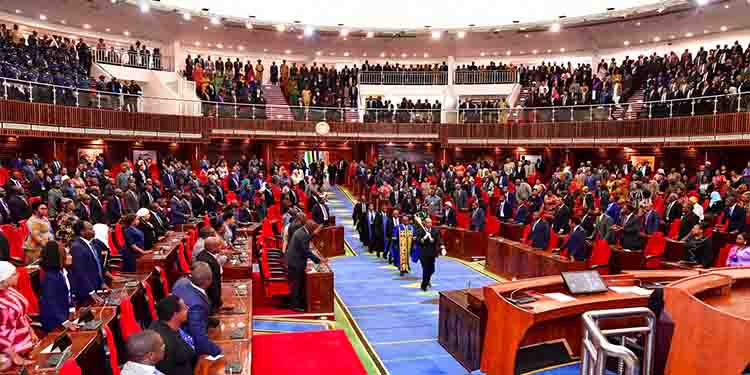
Tanzania is fast approaching the October 2025 presidential and parliamentary elections, which will be preceded today by President Samia Suluhu Hassan’s dissolution of the 12th Parliament. It is necessary to reflect on the achievements made during her leadership and the Sixth Phase Government. Among these accomplishments, the Geita Gold Refinery (GGR) is notable for its vital function in boosting Tanzania’s gold sector and fostering economic transformation, consolidating the country’s position on the world gold map. For those who are inexperienced with recent advances in the gold mining sector and the broader mining business, GGR is an impressive accomplishment. Sarah Masasi, a Tanzanian female entrepreneur, leads the country’s first refinery, which is locally owned. Tanzania has garnered global acclaim under President Samia’s leadership for its dedication to the Responsible Minerals Initiative (RMI), particularly in gold refining. This accomplishment helps Tanzania’s status as a dependable and responsible operator in the global minerals market.
The London Metal Exchange (LME), the world’s biggest industrial metals trading platform, has recognised the RMI, demonstrating the country’s improving compliance with global gold sourcing and trading standards. According to research, GGR is nearing the end of the certification process, and its participation in the RMI audit has already established it as one of Africa’s most compliant refineries. Since its start, GGR has intended to become Africa’s second refinery authorised by the London Bullion Market Association. This objective is supported by a clear vision, major investment in cutting-edge equipment, qualified personnel, and regular international compliance checks. These accomplishments establish GGR as one of Africa’s most technologically advanced and fully automated gold refineries, in line with President Samia’s concept of economic diplomacy.
As President Samia dissolves the 12th Parliament, Tanzanians should reflect on the considerable economic success achieved during her sixth phase, particularly in the mining and gold trade industries, as well as GGR milestones. According to examinations, Africa sells over 1,000 tonnes of gold annually through legal channels, with an estimated 435 tonnes transported, accounting for more than half of global gold output. Despite this, Africa has only one LBMA-accredited refinery. GGR’s pursuit of LBMA membership under Dr Samia’s term offers an opportunity to close this gap and establish Tanzania as the continent’s preeminent gold refining hub. GGR’s entry into foreign markets, backed up by responsible sourcing certifications, will strengthen Tanzania’s position in the global gold value chain.
GGR supplies these miners with fair, transparent, and efficient gold processing services. With a processing capacity of up to 600 kilogrammes per day and 15 kilogrammes every 8 to 15 minutes, GGR promotes local beneficiation and mineral value enhancement. In terms of mining economics, GGR solves governance concerns in the artisanal and small-scale mining (ASM) sector by ensuring that gold is handled lawfully and ethically. Significantly, GGR’s relationship with the Bank of Tanzania (BoT) strengthens this environment. A new revolutionary agreement permits Geita Gold Mining Limited (GGML) to sell 20% of its gold production directly to the government via GGR. This effort promotes monetary stability, ensures a consistent gold supply for local processing, raises gold reserves, and improves value retention from resource wealth.
Tanzania is making strides towards economic independence and expanding its gold reserves under the leadership of BoT Governor Emmanuel Tutuba. The collaboration between GGR, GGML, and BoT supports President Samia’s aim of increasing gold reserves and local value addition. Tanzania is making progress towards economic independence and increasing its gold reserves under the leadership of BoT Governor Emmanuel Tutuba. GGR’s ability to obtain local bank financing rather than relying entirely on international loans exemplifies a successful model of locally supported industrialisation. With over ten years of experience in the financial sector, I see this as evidence of growing confidence in Tanzania’s banking system, which aligns with President Samia’s aim for long-term, inclusive, and locally driven prosperity.
Examining inclusive economic engagement, GGR has overcome gender barriers and is leading Africa’s participation in the Global Responsible Minerals Initiative in mining by establishing gender and industrialisation milestones. Ms Masasi’s leadership is more than just a financial success; it represents a watershed moment for gender equality in Tanzania’s extractive and industrial sectors. This accomplishment is opportune, given Dr Samia’s administration’s deliberate expansion of women’s participation in all economic sectors. Ms Masasi’s success at GGR shows what women can achieve with support, paving the way for future female entrepreneurs in heavy industry and extractives.
The Samian government’s industrial policy is closely aligned with GGR operations. Tanzania is transitioning from an extractive to a value-added economy by boosting local gold refining. This transition creates more jobs in high-value industries, improves industrial skills, and raises bargaining power in global resource markets. GGR’s innovations serve as an example for responsible mining processing in Africa and a source of national pride, particularly in gold.
This compliance fosters international buyer trust, increases Tanzania’s export competitiveness, and strengthens the country’s desirability as a gold trading partner. Access to GGR provides small-scale miners with better prices, fairer conditions, and worldwide market access via a transparent, compliant supply chain. GGR strategically anchors local beneficiation, preserves greater gold value at the national level, enhances reserves, and encourages responsible sourcing, changing Tanzania’s gold economy. Its performance demonstrates that women can lead in industrial areas and drive economic progress. With the 2025 elections approaching, Tanzanians have every right to celebrate this accomplishment as part of the larger improvements made under President Samia’s innovative leadership.
